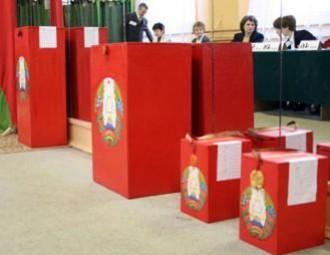Uladzimir Matskevich: In the current situation we can only passively resist the regime

The participation of the opposition in the local “election” so as to popularize their parties and programs is nothing but self-deceit.
In the current political situation we can only passively resist the regime and abstain from participation in all governmental initiatives.
Such opinion voiced Uladzimir Matskevich, the head of the Board of the International Consortium “EuroBelarus”, philosopher and methodologist in the talk with the EuroBelarus Information Service.
- Yet another mock election is going on now. Local Councils in Belarus have no significance at all; besides, minimal number of voters necessary to accept the election results was abolished. However, the authorities demonstrated surprisingly tough attitude to formation of election committees. Thus, the number of opposition members has fallen from 87 to 16 since 2010. Why does such tightening of policy take place?
- I don’t see some special tightening of policy; I believe that we observe the third-generation political technologies here.
If we compare the situation with opposition parties during the 90s and now, we’ll find out that the number of people, who are able to interest local community, has fallen dramatically. The potential of parties has sharply decreased, so the authorities can ignore them.
-Being well aware of the fictitious nature of the election, opposition parties still participate in it, claiming that they have to popularize party programme and demonstrate that there is no election in Belarus. The question is whether such popularization is necessary? And what is the point for the opposition to participate in local elections?
- The motives declared by opposition parties are self-deceit: there can’t be any popularization in the process of “election”; the same media will cover the election and the same politically committed audience will read about them.
- The analysts state that with the low level of trust opposition should win the trust of the electorate, mentioning that the rating of today’s opposition leaders can hardly be improved. But we don’t have some other opposition; how today’s oppositionists can be trusted then?
- Let’s clarify the situation.
Today’s opposition is quite numerous: workers, common people, pensioners, medium-sized businessmen. However, these people make diffused opposition, or opposition in its sociological meaning; but we don’t have organized opposition. Today’s regime and Lukashenka’s centralized power have always been destroying the political opposition’s living space, so I can’t say that it is only the opposition who is to blame for the present-day situation. Of course, the feigned optimism of the Belarusan opposition was the reason of many mistakes, but most blame lies on the regime, which has been gradually, slowly and intentionally suffocating everything around it.
Public opinion is formed not by the opposition leaders, but by the people in the civil society, artists, scientists, philosophers, who are not involved in state institutions. There is a number of quite famous people who are constantly interviewed by the journalists; their opinion is much more valuable than that of the opposition leaders.
But these people don’t want to get involved in the politics: they have their own business whatever the regime in the country is.
Moreover, we have to understand that public opinion is formed long before any political or election campaign. And the aim of the election campaign is to tie the established public opinion to a certain candidate.
- Local election is a prolog to the presidential election. In this regard tightening of policy by the authorities can be explained: the necessary minimal number of the voters is required at the presidential campaign, which is to take place in a year. So Lukashenka’s regime is going to survive with the help of its citizens, which means that repressions will only get worse. What can Belarusan society oppose to the tightening of policy?
- In the current political situation we can only passively resist the regime and abstain from participation in all governmental initiatives.
However, we can’t stop the regime by merely ignoring it. The authorities lie to the voters at the election, which is additionally supported by the passive observers, who attract extra-attention to this dishonest game.
So don’t make the fraud of the authorities attractive: the least you can do is to abstain from participation in this deception. And it concerns the election candidates in the first turn.
- The so-called election have long ago transformed into a ritual: the regime pretends that it organizes and holds the election; opposition pretends that it either participates in it or not; voters come to the polling stations, though they know that their votes are not counted. Sooner or later this vicious circle has to be broken. What makes it vulnerable, and how soon can it happen?
- This vicious circle can be broken only by abstaining from participation in the fraud. Inactivity can become the stumbling block for the authorities.
-
03.01
-
07.10
-
22.09
-
17.08
-
12.08
-
30.09








































